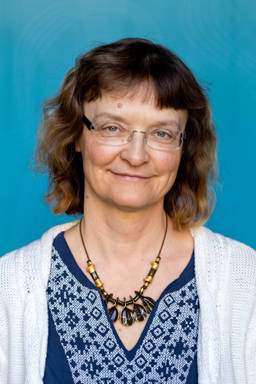Colombia
Extended Application deadline: Two new postdoctoral positions at PRIO
The deadline for the two postdoctoral positions has been extended to 26 January 2026. The positions, in social psychology and anthropology, are part of the ERC-funded project Rituals in Combatant-to-Civilian Transformation (Com2Civ), led by Júlia Palik.
Kickoff Workshop for GenderJustice at PRIO
The Religious Gender Justice Activism (GenderJustice) project was successfully launched in August 2025.
The First Lady of Colombia, Veronica Alcocer, Visits PRIO
The First Lady of Colombia, Veronica Alcocer, visited PRIO 7th of September 2022.
Reintegrating Together or Alone? New Study on How the Reintegration Process Can Affect Ex-Combatants’ Political Participation
In a new PRIO Paper, Senior Researcher Wenche Iren Hauge assesses how the reintegration processes of ex-combatants affect their political participation.
New Case Brief: Controversies of Inclusion in the Colombian Peace Process: The Balancing Act of Introducing New Norms and Gaining Popular Support
This new FAIR case brief by Isabel Bramsen argues that inclusion is in fact a controversial issue with several dilemmas in relation to peace processes.
Workshop on Ethical Issues in Peace Negotiations and Mediation
On 9-10 September 2021, around 20 researchers met for a hybrid online-offline workshop to share their research on specific cases of ethical issues in peace negotiations and mediation.
The Crime-Reducing Effect of Education - Funding in Place for Project
Can governments reduce violent crime by increasing education, and if so, under what conditions?Mauricio Rivera has received FINNUT funding from the Research Council of Norway for the 4-year project The Crime-Reducing Effect of Education: Disaggregating Education and Impact on Violent Crime (CREED).
PRIO Global Fellow Appointed to Colombian Peace Tribunal
Julieta Lemaitre is one of the 51 magistrates who will sit on the various courts of the Special Jurisdiction for Peace (JEP) in Colombia.
New issue of the PRIO Gender, Peace and Security Update
Empowering Survivors of Sexual Violence in DR Congo
PRIO Research to Feature at Conference on Gender Perspectives on Demography and Conflicts
Presenting research results and policy recommendations on population, poverty, women, peace and security
PRIO Gender, Peace and Security Update (Issue 4-2016)
Gender and Inclusion in the Colombian Peace Process
Nobel Peace Prize awarded to Juan Manuel Santos
The Colombian president Juan Manuel Santos has been awarded the 2016 Nobel Peace Prize for his work to bring peace to the country.
PRIO Gender, Peace and Security Update (Issue 3-2016)
Integrating Gender into Foreign Policy
Policy Brief on Gender in DDR
Disarmament, Demobilization and Reintegration Processes (DDR): The Gender Asset
PRIO Gender, Peace and Security Update (Issue 2-2015)
Women’s Legal Mobilisation in a Violent Context: Lessons from internally displaced women’s organisations in Colombia
Colombia’s Relentless Pursuit of Justice: Wartime Abuses, Dynamics of Violence, and Justice Outcomes
PhD thesis
Architecture, Politics and Peacebuilding in Medellín
Journal article in Peacebuilding
Collective Reintegration: Social and Political Advantages for Female Ex-Combatants
GPS Policy Brief
Interpretive Flexibility as an Approach to Designing Inclusive Urban Space: Learning from Medellín and Beirut
Journal article in Nordic Journal of Urban Studies
Armed Violence in the Llanos Orientales Region Following the Signing of the Peace Agreement with the FARC-EP in Colombia
Journal article in Journal of Strategic Security
A Tug of War: Pursuing Justice Amid Armed Conflict
Journal article in Nordic Journal of Human Rights
Ex-Combatants’ Choices: Reintegrating Together or Alone – Effects on Political Participation
PRIO Paper
The Effect of Mass Protest on Attitudes toward Democracy: New Data and Evidence from Colombia
Master thesis
Bloque Noroccidental - Iván Ríos
Book chapter in FARC-EP Flujos y Reflujos - La guerra en las regiones
Dinámicas de la violencia en los llanos orientales tras la firma del acuerdo de paz con las FARC-EP
Book chapter in Donde está la paz territorial? Violencia(s) y conflict armado tras el Acuerdo de Paz con las FARC-EP
Negotiating Disarmament – The Gender Dimension: Barriers to the Inclusion of Women in Disarmament Negotiations
GPS Policy Brief
Controversies of Inclusion in the Colombian Peace Process: The Balancing Act of Introducing New Norms and Gaining Popular Support
FAIR Case Brief
Listening to Peace: Dimensions and Variations in the Implementation of the Final Peace Agreement in Colombia
Escuchar la paz: Dimensiones y variaciones en la implementación del Acuerdo Final
The State of Democracy among Norway’s Partner Countries in Development Policy
Conflict Trends
People’s Perceptions of Peace Accord Implementation in Colombia: Comparing Attitudes among the Conflict-Affected Population
PRIO Policy Brief
Negotiating Disarmament: Lessons Learnt from Colombia, Nepal, the Philippines, South Sudan, Sri Lanka
PRIO Policy Brief
Negotiating Disarmament: Lessons Learnt from Colombia, Nepal, the Philippines, South Sudan, Sri Lanka
PRIO Paper
The afterlife of buzzwords: the journey of rights-based approaches through the humanitarian sector
Journal article in The International Journal of Human Rights
“Nobody Listens to Us”: Minors in DDR Processes – The Gender Dimension
PRIO Paper
The Challenges of Inclusive Peace Processes: The Case of Colombia
Justice Now or Later? How Addressing Violence during War Shapes Post-conflict Justice
Repression - Expression // Violence - Creative Resistance
Negotiating Disarmament
Colombia – Five Years After the Peace Agreement
Launch of the UNDP/PRIO report on attitudes and perceptions towards the peace process in Colombia
Implementation of Peace Agreements: Easier Said than Done.
Colombia’s Transition to Peace: A Never-Ending Struggle?
The Colombian Peace Process, Where Are We and What Are the Key Challenges?
Influence of Mediators on Peace Agreement Agendas
NWM-Norway Workshop
Designing Colombian Peace: Reflections by the High Commissioner for Peace, Sergio Jaramillo
Colombia’s Peace Process and the Nobel: A Prize that Changed History?
Folkeavstemning om fredsavtalen i Colombia – Mer politikk enn fred?
The Road Towards Colombian Peace: Field-Based Perspectives
After the War: What Future for Women?
Civil War in Colombia
Transitional Justice and Civil Conflicts Settlements
La primera noche [The First Night]
Religious Gender Justice Activism (GenderJustice)
Micro-Foundations of Peace: Bureaucrats, Civilians, and Peacebuilding in Colombia (MicroPeace)
Red lines and grey zones: Exploring the ethics of humanitarian negotiation
Ex-Combatants' Choices: Reintegrating Together or Alone - Effects on Political Participation. Case Studies from Guatemala, Nepal and Colombia
Negotiating Disarmament: Lessons learnt from Colombia, Nepal, the Philippines, South Sudan, and Sri Lanka
Working Through Violence; SMEs and the SDGs in Fragile Urban Spaces
The Crime-Reducing Effect of Education: Disaggregating Education and Impact on Violent Crime (CREED)
Minors in Disarmament, Demobilization and Reintegration (DDR) Processes - The Gender Dimension
Catering to Conflict-Affected Communities? The Trajectory and Relevance of Judicial and Non-Judicial Measures in Colombia
All is Fair in Law and War: Judicial Behavior in Conflict-affected Societies
Perceptions of Reintegration: A Case Study of Mesetas
From Hopeful Agreements to Disillusioned Peace? The effects of peace agreement implementation on women’s security and empowerment
Monitoring Attitudes, Perceptions and Support (MAPS)
Gender Dimensions of DDR in Colombia
Protection of Civilians: From Principle to Practice
The Significance of Political Organization and International Law for Displaced Women in Colombia: A Socio-legal study of Liga De Mujeres
Beyond Recognition to One, Ethical Reassurance to Many
An Impossible Peace
A Bold Choice for the Nobel Peace Prize
Most Importantly a Nobel for the Colombian People and the Victims of the Civil War
A Nobel for Colombian Peace Makers? Yes! (But to whom?)
An Academic New Year’s Resolution for Colombia: Understanding Continued Gendered Violence as a Threat to Positive Peace
Santos and Jiménez: Fraternal Enough?
From IDPs to Victims in Colombia: Transition from Humanitarian Crisis through Law Reform?
Beyond Sexual Violence: Gendered Political Insecurity as a Threat to Peace
The Future of Peace Dialogues in Colombia: Challenges and Opportunities
The Colombian Peace Process Effort and COVID-19
On the Front Lines of Sustaining Peace in Colombia
Safeguarding women after disasters: some progress, but not enough
How Colombia’s Disarmament Process Transformed Weapons Into Symbols of Peace
‘May peace not cost us our lives’: Reading Colombia’s peace process as hegemonic crisis
Book review: Protecting Human Rights Defenders at Risk
Book review: Securitization and Desecuritization of FARC in Colombia
The Crystal Peace: Civilian Militarism and Wake Civil Society in Colombia
The Challenges of Inclusive Peace Processes: The Case of Colombia
Justice Now or Later? How Addressing Violence during War Shapes Post-conflict Justice
Negotiating Disarmament
Colombia – Five Years After the Peace Agreement
Implementation of Peace Agreements: Easier Said than Done.
Colombia’s Transition to Peace: A Never-Ending Struggle?
The Colombian Peace Process, Where Are We and What Are the Key Challenges?
- Algeria
- Angola
- Botswana
- Burkina Faso
- Burundi
- Cameroon
- Cape Verde
- Central Africa
- Chad
- Cote d'Ivoire
- Democratic Republic of the Congo
- Djibouti
- East Africa
- Egypt
- Eritrea
- Ethiopia
- Gambia
- Ghana
- Guinea
- Guinea-Bissau
- Horn of Africa
- Kenya
- Lesotho
- Liberia
- Libya
- Madagascar
- Malawi
- Mali
- Mauritania
- Morocco
- Mozambique
- Namibia
- Niger
- Nigeria
- North Africa
- Rwanda
- Sahel
- Senegal
- Sierra Leone
- Somalia
- South Africa
- South Sudan
- Southern Africa
- Sudan
- Swaziland
- Tanzania
- Tunisia
- Uganda
- West Africa
- Western Africa
- Zambia
- Zimbabwe
- Abkhazia
- Afghanistan
- Armenia
- Azerbaijan
- Bangladesh
- Cambodia
- Central Asia
- China
- East Asia
- East Timor
- Georgia
- Hong Kong
- India
- Indonesia
- Iran
- Iraq
- Israel
- Japan
- Jordan
- Kazakhstan
- Kuwait
- Kyrgyzstan
- Laos
- Lebanon
- Malaysia
- Middle East
- Mongolia
- Myanmar
- Nepal
- North Korea
- Pacific Asia
- Pakistan
- Palestine
- Philippines
- Qatar
- Russia
- Saudi Arabia
- South Asia
- South Korea
- Southeast Asia
- Sri Lanka
- Syria
- Tajikistan
- Thailand
- Turkey
- Turkmenistan
- United Arab Emirates
- Uzbekistan
- Vietnam
- West Asia
- Yemen
- Albania
- Baltic Countries
- Belarus
- Belgium
- Bosnia and Herzegovina
- Caucasus
- Central Europe
- Croatia
- Cyprus
- Czech Republic
- Denmark
- Eastern Europe
- Eastern Mediterranean
- Estonia
- Finland
- France
- Germany
- Greece
- Hungary
- Ireland
- Italy
- Kosovo
- Latvia
- Lithuania
- Macedonia
- Moldova
- Montenegro
- Nordic countries
- Northern Europe
- Northern Ireland
- Norway
- Poland
- Portugal
- Romania
- Russia
- Serbia
- Slovakia
- Slovenia
- Southern Europe
- Spain
- Svalbard and the Jan Mayen Island
- Sweden
- Switzerland
- The Balkans
- The Baltic Sea Area
- The Barents Region
- The European Union
- The Netherlands
- Ukraine
- United Kingdom
- Western Europe
- Yugoslavia (former)










